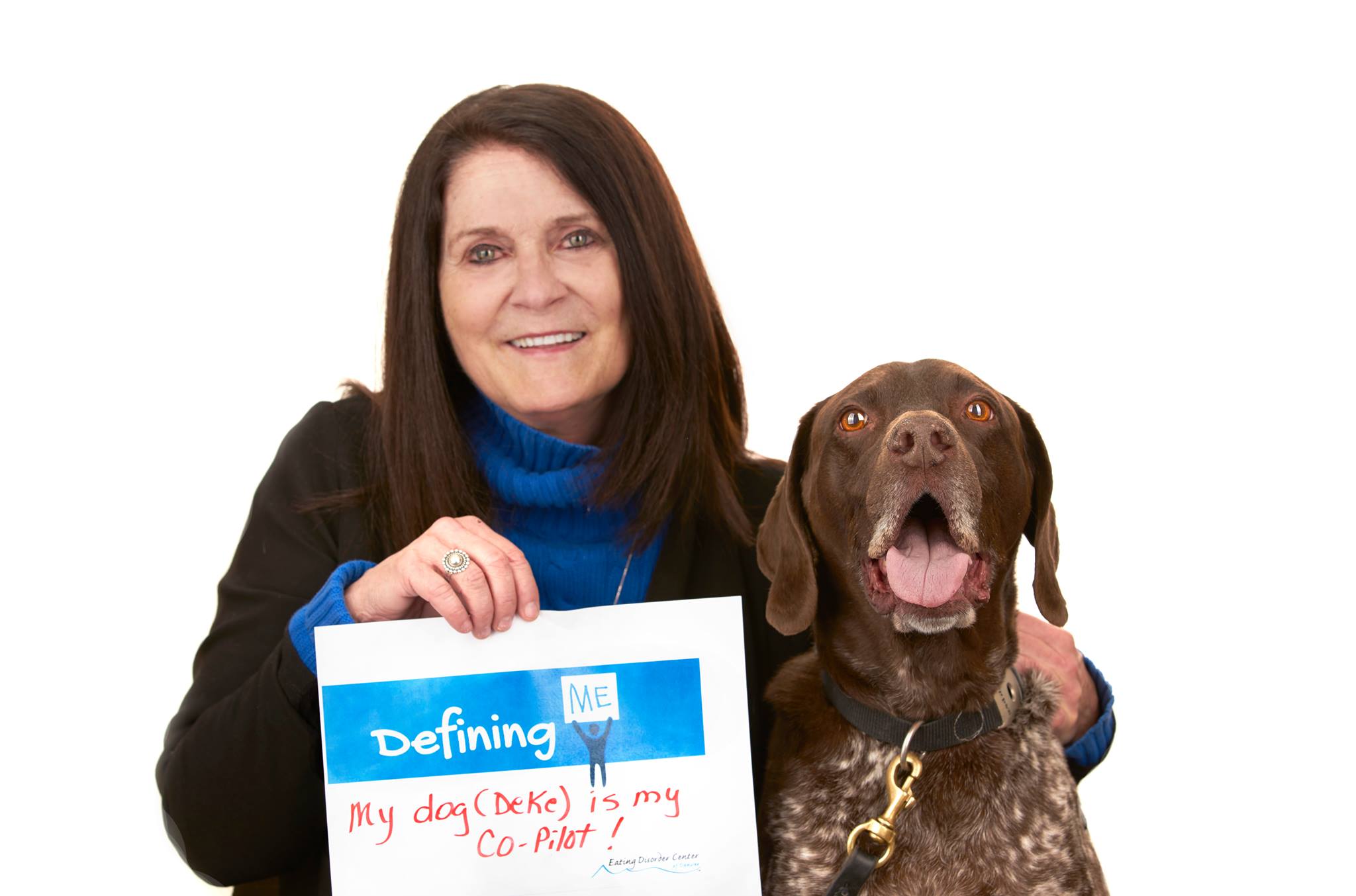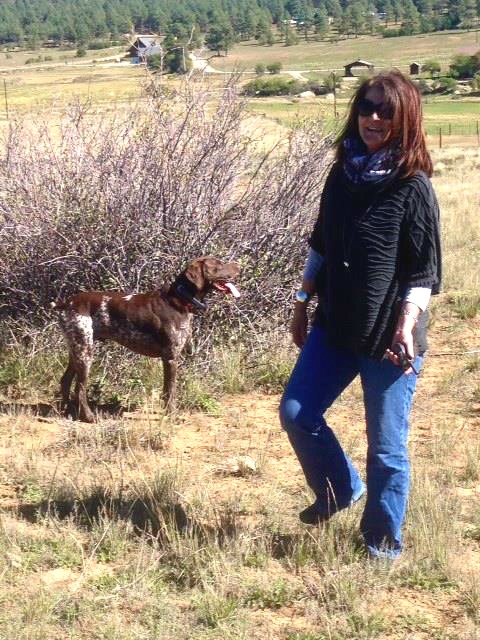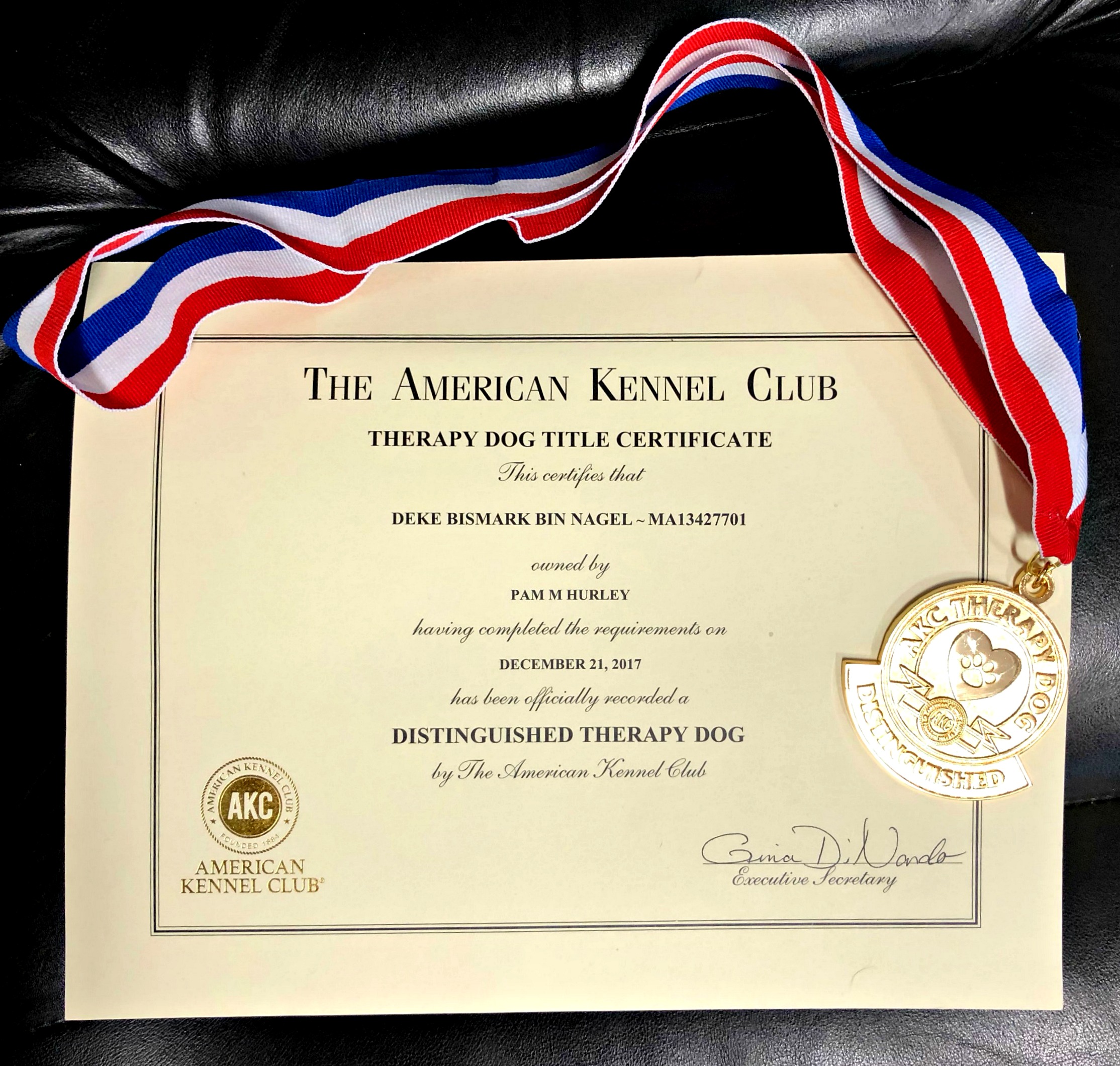The Canine Sidekick of EDCare Denver
What is Animal-Assisted Therapy
Animal-Assisted Therapy (AAT) utilizes animals, such as cats, horses, and dogs in goal-directed treatment sessions. These goals can include improving a patient’s mental, emotional, social or even physical well-being. AAT is more than simply spending time with an animal, it is about finding and experiencing connection to oneself and others. It helps individuals assess their emotions and express them in a therapeutic, recovery-focused setting.

Meet Deke
Due to the complex nature of eating disorders, working with patients both individually and together with their loved ones is an essential part of treatment and the recovery process. Pam Hurley, MSW, LCSW, one of EDCare’s dedicated family therapists, incorporates Animal-Assisted Therapy to help patients on their journey to eating disorder recovery.
Pam’s 14-year-old canine sidekick is a German Shorthaired Pointer named Deke. Deke was not adopted with the intent of being trained as a registered therapy dog. However, Pam recognized how a gentle, affectionate, and trusting animal-like Deke could benefit others. This prompted Pam to obtain her Animal-Assisted Intervention (AAI) training and registration.
In 2012 Deke became a fully registered therapy dog and emotional support animal through Pet Partners. Since then, this dynamic duo have worked together at EDCare to create an environment of emotional connectedness, playfulness, calmness, and motivation for patients, families and staff.
Animal-Assisted Therapy at EDCare
The development of an eating disorder can be influenced by a combination of biological, psychological and environmental factors. With so many variables, treatment is often complicated. Not only do patients feel isolated from others, but from their authentic selves, as well.
As a therapy dog, Deke is able to relate to patients in a way Pam and other mental health professionals cannot. The patient-canine connection helps individuals explore their thoughts and feelings in a non-threatening, unconditional, and judgment-free way. Even watching Deke sleep, eat, and breathe peacefully and naturally can provide calmness for patients who are addressing painful issues and memories.
Additionally, this connection helps patients assess their human interpersonal relationships, personal boundaries, communication style, and non-verbal cues. Deke’s natural, authentic-self allows him to sense the unspoken emotional demeanor of patients and be responsive to their vulnerable feelings. When patients interact with Deke’s kind, playful, and trusting style, it helps them trust and align with the therapeutic process. For many people, the unique animal-human interaction experienced through AAT helps them experience their emotions and reconnect to their authentic selves in a more soothing and accepting way. In fact, research suggests AAT is more beneficial for many patients than receiving traditional psychotherapy by itself. Sometimes it takes an animal to make us more human.
Over the course of 5 years, Deke completed more than 400 patient visits and was awarded the title of Distinguished Therapy Dog by the American Kennel Club and received a gold medal of honor. Deke is a valued member of the EDCare team.

–
Top 6 Benefits of Animal-Assisted Therapy in Eating Disorder Treatment
- Increased focus, attention and motivation
- Increased self-esteem and ability to give and receive affection
- Reduced anxiety, depression, grief, and isolation
- Increased trust, empathy, and teamwork
- Improved social skills
- Increased playfulness, spontaneity, and being in the present


